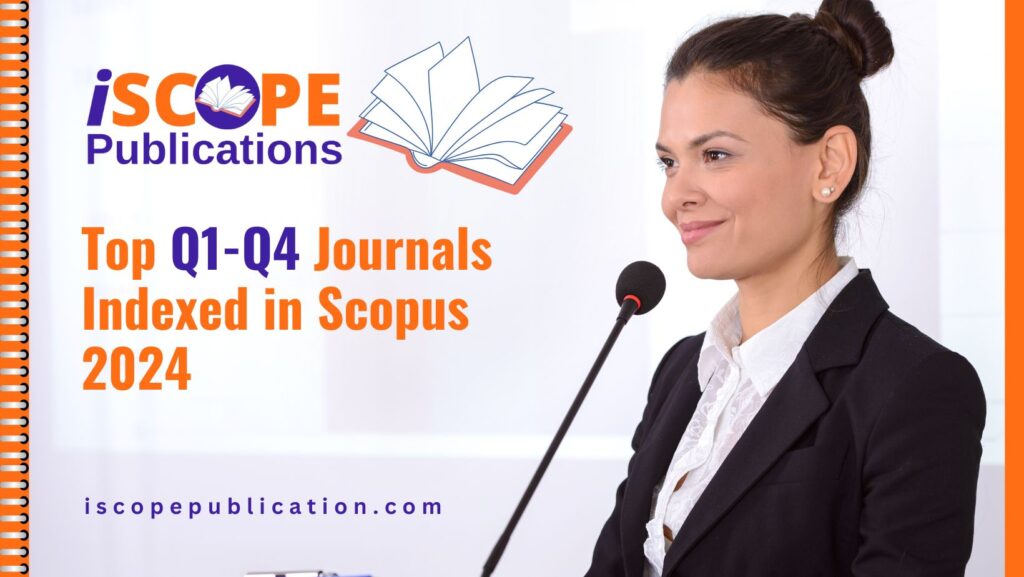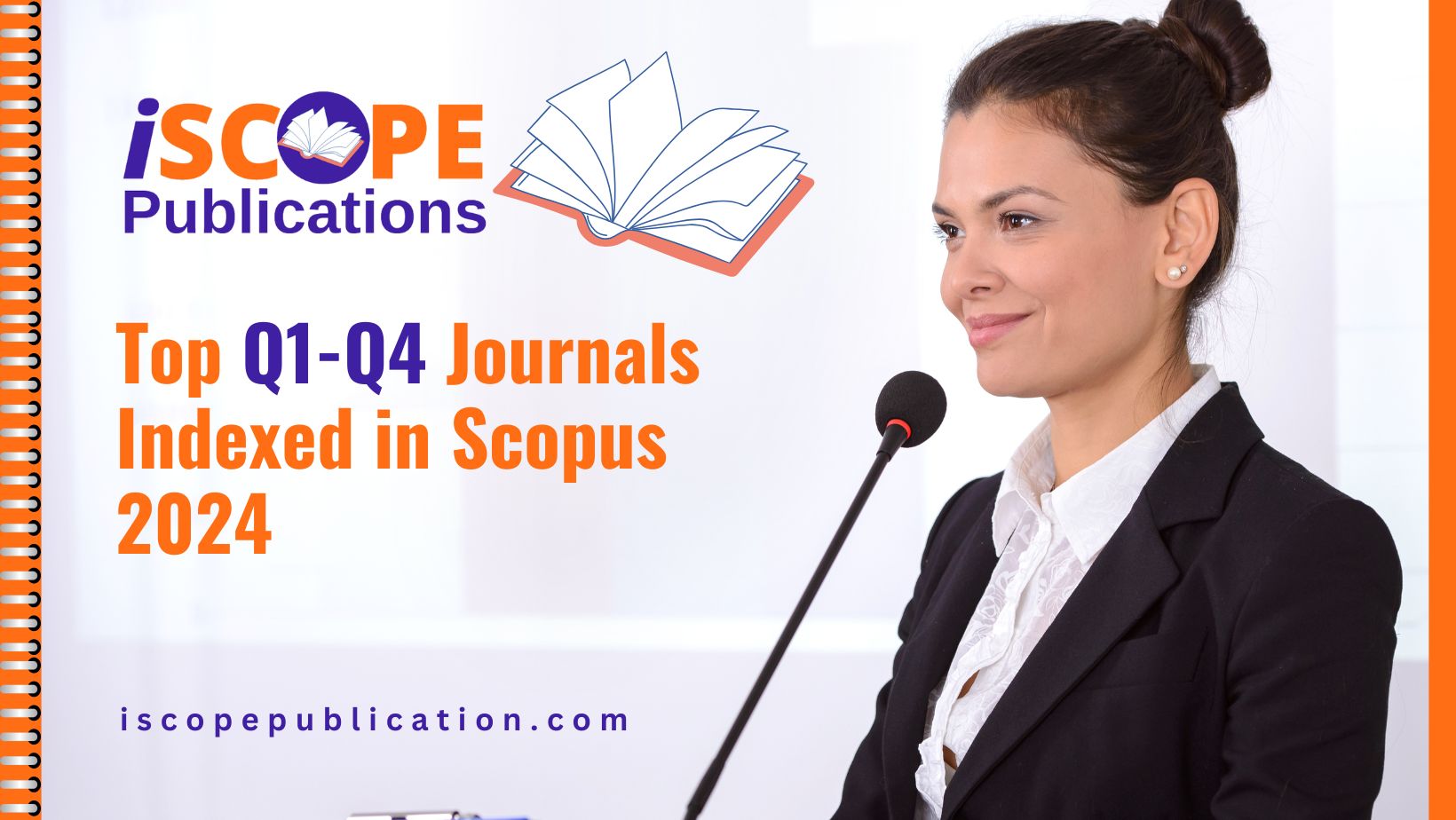In today’s fast-paced digital world, people are constantly seeking quick and reliable information at their fingertips. When it comes to academic research, individuals often rely on search engines to find reputable journals that provide valuable insights. Scopus, a widely recognized abstract and citation database, plays a crucial role in indexing and categorizing these journals. Explore the top journals indexed in Scopus for each quarter of the year, catering to the need for instant access to reliable scholarly resources.

What Are Quartiles in Journal Rankings?
Scopus classifies journals into four quartiles based on their impact and quality:
Q1: Top 25% of journals in a specific field.
Nature – As a multidisciplinary scientific journal, Nature is sought after by researchers across various domains. Its comprehensive coverage and rigorous peer-review process make it a top choice for scholarly publications.
The Lancet – With a focus on medical research and global health issues, The Lancet has established itself as a leading journal in the field. Its authoritative articles attract readers who seek up-to-date information on healthcare advancements.
Science – Science is renowned for its groundbreaking research articles encompassing diverse scientific disciplines. Researchers and enthusiasts alike turn to this journal for cutting-edge discoveries and insights.
Proceedings of the National Academy of Sciences (PNAS) – PNAS emphasizes publishing innovative research in the natural, physical, and social sciences. Its broad scope and prestigious reputation make it a preferred choice for researchers worldwide.
Q2: Journals in the 25% to 50% range.
Journal of Finance – As a top-tier journal in finance, the Journal of Finance provides a platform for researchers to share their findings on various financial topics. It is highly regarded in the academic and financial communities.
Journal of Marketing – Journal of Marketing is dedicated to marketing research and innovative marketing strategies. Professionals and academics rely on this journal for the latest insights into consumer behavior and market trends.
Journal of Applied Psychology – This journal focuses on applied psychology, organizational behavior, and related fields. Its practical approach appeals to researchers and practitioners aiming to bridge the gap between theory and practice.
Journal of Materials Science – With a focus on materials science and engineering, this journal covers advancements in the development and application of various materials. It serves as a valuable resource for researchers in the field.
Q3: Journals in the 50% to 75% range.
Journal of Economic Literature – Journal of Economic Literature provides an extensive review of economic literature, theories, and methodologies. Economists and researchers rely on this journal to stay informed about the latest trends and developments in the field.
Journal of Political Economy – This journal publishes research on the intersection of economic and political issues. It offers valuable insights into the relationship between these two domains, attracting a wide range of readers.
Journal of Consumer Research – Journal of Consumer Research explores consumer behavior, psychology, and decision-making processes. It is a go-to resource for marketers, advertisers, and researchers interested in understanding consumer preferences and trends.
Journal of Environmental Management – Focusing on environmental science, sustainability, and resource management, this journal addresses pressing environmental issues. Researchers and policymakers refer to it to gain insights into effective environmental management strategies.
Q4: Bottom 25% of journals.
Journal of Business Ethics – Journal of Business Ethics delves into ethical issues in business and corporate social responsibility. It provides a platform for researchers and professionals to explore the ethical dimensions of various business practices.
Journal of Organizational Behavior – This journal examines organizational behavior, leadership, and workplace dynamics. It offers valuable insights into enhancing organizational effectiveness and fostering positive workplace environments.
Journal of Educational Psychology – Journal of Educational Psychology explores theories, learning processes, and instructional strategies in the field of educational psychology. Educators and researchers rely on this journal for evidence-based practices in education.
Journal of Experimental Psychology: General – With a focus on cognitive psychology, perception, and human behavior, this journal publishes research that contributes to our understanding of the human mind and behavior.
Top journals indexed in Scopus for each quarter provide a wealth of knowledge and insights for researchers, academics, and professionals. Broad coverage and rigorous standards ensure that readers can access credible and up-to-date information. By catering to the need for instant access to reliable scholarly resources, these journals play a crucial role in advancing research and knowledge dissemination.
Why Researchers Search and Click These Journals?
Researchers often search and click on these journals for several reasons:
- Reputation: High-impact journals are known for their rigorous peer review and quality publications.
- Visibility: Publishing in well-known journals increases the visibility and citation potential of their work.
- Relevance: These journals cover a wide range of disciplines, making them relevant to many researchers.
Top-tier Q1 journal or a specialized Q4 journal, understanding the landscape of Scopus-indexed journals can help you make informed decisions about where to publish your research. Each quartile offers unique opportunities and challenges, and the right choice depends on your research goals and field of study.
Selecting the right journal for your research is crucial for maximizing its impact and visibility. Top-tier Q1 journal or a specialized Q4 journal, understanding the landscape of Scopus indexed journals can help you make informed decisions. Each quartile offers unique opportunities and challenges, and the right choice depends on your research goals and field of study.



